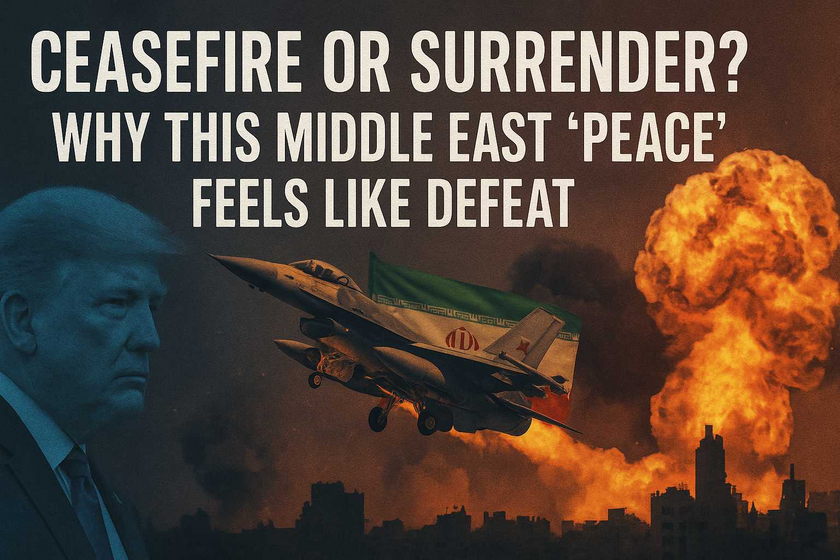By Chuck Holton
The last 24 hours have been nothing short of chaos. Ceasefire? Not really. Victory? Not quite. Clarity? Nowhere to be found.
Let’s cut through the noise.
President Trump, apparently eager to bring closure to the latest round of fighting between Israel and Iran, unilaterally announced a ceasefire—without a clear agreement from either side. Iran immediately denied it. Israel kept bombing. And the “peace” Trump declared lasted barely long enough for a headline.
It’s no surprise that many of us are left scratching our heads. What just happened?
Click HERE to watch the FULL video
Iran’s Empty Theater, Israel’s Real War
Iran’s retaliatory strike after U.S. bombers hit their nuclear facilities was a limp attempt at saving face. Everyone—from Qatar to Fox News—knew the missiles were coming. The U.S. had cleared its personnel from Al-Udeid Air Base in advance. When the missiles finally fell, only one even landed, and it hit open ground. Iran claimed a crushing blow. The rest of us saw a bad performance.
Israel, by contrast, responded with real force. Their jets struck deep into Iran, taking out key military and nuclear infrastructure. They eliminated senior IRGC personnel and wiped out launchers poised to strike again. And then—just before the ceasefire clock started ticking—they dropped one final payload on Tehran. A precision strike. Military targets only.
Trump’s Peace Prize Problem
Now here’s where things get strange.
Trump’s ceasefire announcement felt more like a press release for a Nobel Peace Prize nomination than an actual foreign policy maneuver. It was sudden. It was confusing. And it ignored the fact that Israel had no reason to stop fighting while it held the upper hand.
Iran needed that ceasefire. Trump wanted it. Israel didn’t. Yet somehow, Israel agreed—grudgingly—after stating they had achieved most of their military objectives.
But what did we really gain?

















